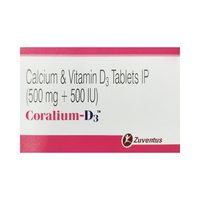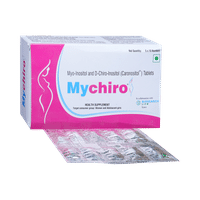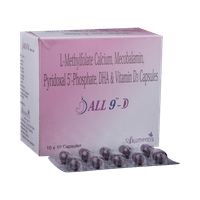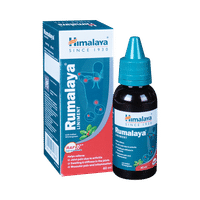Adgaba Gel
Rs.238for 1 tube(s) (30 gm Gel each)
food interaction for Adgaba
alcohol interaction for Adgaba
pregnancy interaction for Adgaba
lactation interaction for Adgaba
medicine interaction for Adgaba
food
alcohol
pregnancy
lactation
medicine
No interaction found/established
No interaction found/established
Adgaba Gel may be unsafe to use during pregnancy. Although there are limited studies in humans, animal studies have shown harmful effects on the developing baby. Your doctor will weigh the benefits and any potential risks before prescribing it to you. Please consult your doctor.
CONSULT YOUR DOCTOR
Adgaba Gel is probably safe to use during breastfeeding. Limited human data suggests that the drug does not represent any significant risk to the baby.
SAFE IF PRESCRIBED
No interaction found/established
SALT INFORMATION FOR Adgaba
Gabapentin(6% w/w)
Uses
Gabapentin is used in the treatment of neuropathic pain and epilepsy/seizures.
How it works
Gabapentin is an antiepileptic medication. When given for epilepsy, it is believed to work by reducing the abnormal electrical activity in the brain, thus preventing seizures. It is also used to treat nerve pain where it blocks pain by interfering with pain signals traveling through the damaged nerves and the brain.
Common side effects
Dizziness, Fatigue, Fever, Sleepiness, Viral infection, Decreased white blood cell count, Pneumonia, Respiratory tract infection, Urinary tract infection, Otitis media (infection of ear), Decreased appetite, Increased appetite, Abnormality of voluntary movements, Visual disturbance, Vertigo, Facial swelling, Joint pain, Muscle pain, Impotence, Allergic reaction, Increased glucose level in blood, Agitation, Slow movement, Palpitations, Difficulty in swallowing, Generalized edema, Increased liver enzymes, Anaphylactic reaction, Stevens-Johnson syndrome, Cardiac failure, Blood cell abnormalities
Lidocaine(5% w/w)
Uses
Lidocaine is used for local anesthesia.
How it works
Lidocaine is a local anesthetic. It works by blocking the transmission of pain signals from the nerves to the brain. This helps to decrease the sensation of pain.
Common side effects
Allergic reaction, Application site reactions (burning, irritation, itching and redness)
SUBSTITUTES FOR Adgaba
23 Substitutes
23 Substitutes
Sorted By
 Rs. 271pay 14% more per gm of Gel
Rs. 271pay 14% more per gm of Gel Rs. 284pay 19% more per gm of Gel
Rs. 284pay 19% more per gm of Gel Rs. 276.85pay 15% more per gm of Gel
Rs. 276.85pay 15% more per gm of Gel Rs. 262pay 7% more per gm of Gel
Rs. 262pay 7% more per gm of Gel Rs. 210save 12% more per gm of Gel
Rs. 210save 12% more per gm of Gel
Expert advice FOR Adgaba
- Take it at the same time every day, preferably at bedtime, to avoid any dizziness or drowsiness during the day.
- Avoid taking antacids 2 hours before or after taking Gabapentin as they make it harder for your body to absorb the medicine.
- It may cause sleepiness. Do not drive or do anything requiring concentration until you know how it affects you.
- Inform your doctor if you develop any unusual changes in mood or behavior, new or worsening depression, or suicidal thoughts or behavior.
- Do not stop taking Gabapentin suddenly without talking to your doctor as it may increase the frequency of seizure.
Frequently asked questions FOR Adgaba
Gabapentin
Q. I have been prescribed Gabapentin for pain. When will I start feeling better?
It varies from person to person. Some people take about a week or two before noticing relief in pain. Whereas, some people may see an improvement straight away. It is recommended that you take Gabapentin only for nerve pain and as advised by your doctor.
Q. I think I have gained weight since I started taking Gabapentin. Can this be because of Gabapentin?
Yes, Gabapentin may cause weight gain because it increases your hunger. Regular physical exercise and a balanced diet with low calorie food may help you maintain a stable weight. Consult a dietitian if you have any further concerns to keep your weight stable.
Q. For how long do I need to take Gabapentin?
Your doctor will decide the duration of the treatment based on your condition and your response to the treatment. For instance, if you have been prescribed Gabapentin for epilepsy, you may have to take it for a long time, maybe years even if your seizures are controlled. Whereas, if you are taking it for nerve pain and it has relieved your pain, you may have to take it for several months only.
Lidocaine
Q. What is Lidocaine used for?
This medication is usually applied by a healthcare professional to the area being treated or to the medical equipment as part of a medical procedure. It helps to numb the area and reduces the discomfort associated with the insertion of medical instruments such as needles or catheters. It also helps to reduce the pain and inflammation in conditions such as heamorrhoids (piles) and anal fissures.
Q. Is Lidocaine toxic?
If Lidocaine is used under the supervision of a doctor or as directed by your doctor, it is generally safe to use. However, using more than what is recommended may lead to a number of serious health issues such as numbness of mouth and throat if swallowed. This can lead to difficulty swallowing and even choking.
Q. How long does it take for Lidocaine to work?
Lidocaine is applied at the start of a medical procedure and takes 3-5 minutes for the numbing effect to occur.






















